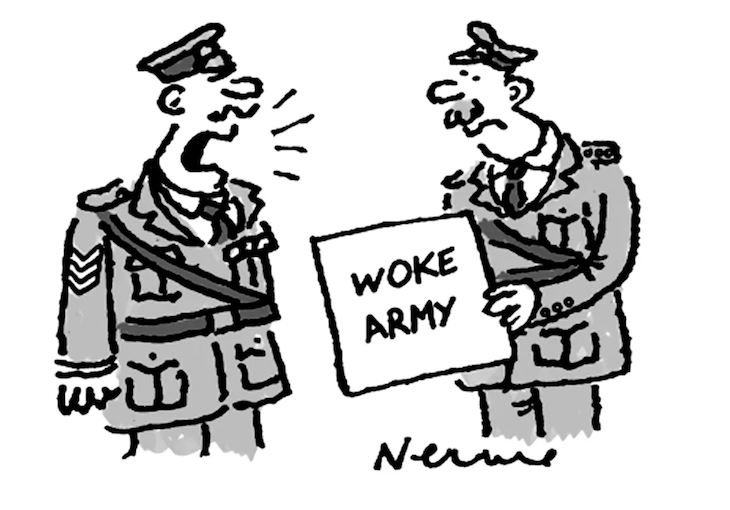daftandbarmy
Army.ca Fossil
- Reaction score
- 41,795
- Points
- 1,160
Good career move there LGen...
The British Army has opened a new front – this time against the country’s private members’ clubs. Deputy Chief of the General Staff, Lieutenant General David Eastman, has issued marching orders to all Corps and Regimental Colonels, saying that he’s “concerned” about historic ties to clubs “whose rules, policies, or cultural practices may not align with the Army’s commitment to inclusivity.” No safe space left in St James…
He’s instructed every unit to conduct a full review of club links, “engage” with them, and “disassociate where necessary.” In his own words:

 order-order.com
order-order.com
EXC: British Army Demands Corps and Regiments Cut Ties With ‘Non-Inclusive’ Private Members’ Clubs
The British Army has opened a new front – this time against the country’s private members’ clubs. Deputy Chief of the General Staff, Lieutenant General David Eastman, has issued marching orders to all Corps and Regimental Colonels, saying that he’s “concerned” about historic ties to clubs “whose rules, policies, or cultural practices may not align with the Army’s commitment to inclusivity.” No safe space left in St James…
He’s instructed every unit to conduct a full review of club links, “engage” with them, and “disassociate where necessary.” In his own words:
“It has come to my attention that some Corps and Regiments maintain historical associations with private members’ clubs whose rules, policies, or cultural practices may not align with the Army’s commitment to inclusivity. This concern extends beyond clubs that exclude women entirely, to include those where membership rights, access, or participation differ on the basis of gender, for example, restrictions on the rooms that can be accessed, the events that can be attended, or whether members may make purchases on equal terms.
Where access or treatment is unequal, the effect is to diminish the agency of some members, restrict their participation in opportunities that may be professionally advantageous, and risk sending a mixed signal about the Army’s stated commitment to inclusion.”

EXC: British Army Demands Corps and Regiments Cut Ties With 'Non-Inclusive' Private Members' Clubs
The British Army has opened a new front - this time against the country's private members’ clubs. Deputy Chief of the General Staff, Lieutenant General









